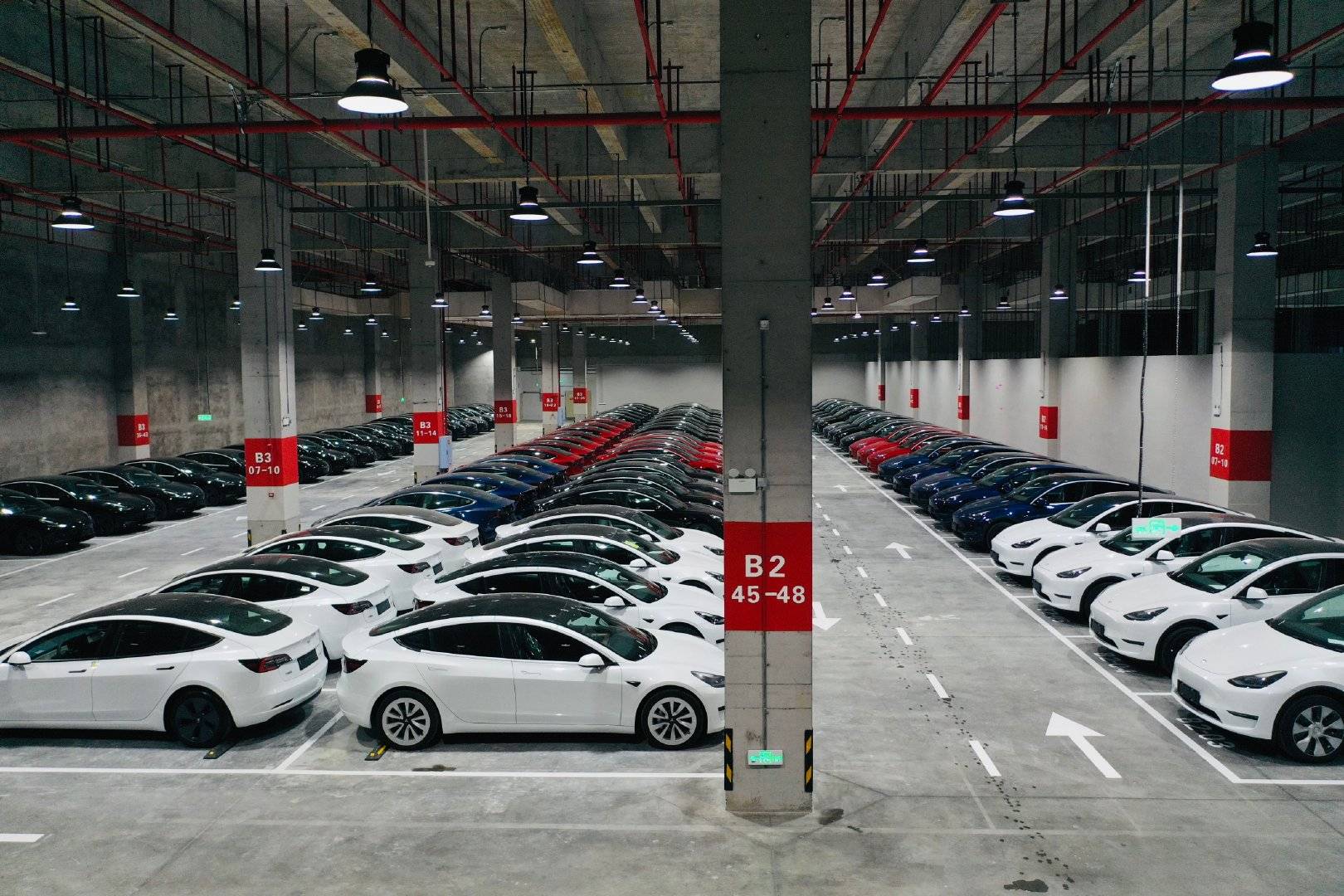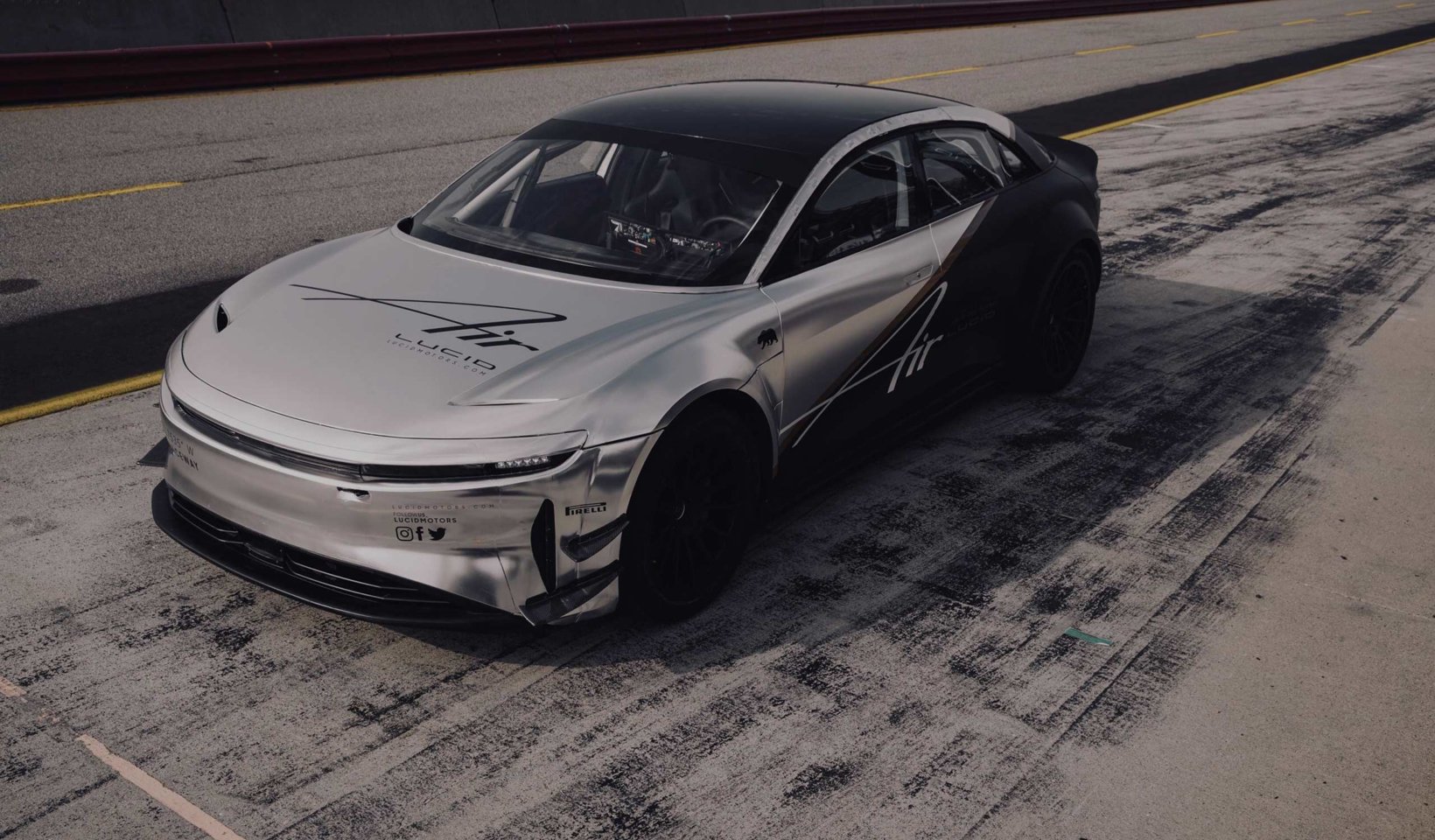Tesla birinchi yarim yillikda AQSh elektr avtomobil bozorida o'sishda davom etmoqda 2023
Dinamik AQShda. bozor manzarasi chiplarni etkazib berishning jonlanishi va benzinli avtomobil ishlab chiqarishni qayta tiklash bilan tavsiflanadi, elektr transport vositalari (EV) boshqa transport vositalaridan ustunlik qilish sur'ati vaqtinchalik pasayganiga guvoh bo'lmoqda.

(Rasm: Tesla modeli 3)
Yilning dastlabki yarmida AQShning EV bozorini o'rganish, bozor ulushini kengaytirishda sezilarli mo''tadillik aniq. Experianning yaqinda chop etilgan US. EV ro'yxatga olish ma'lumotlari yanvar oyida ko'rganligini ko'rsatadi 87,708 elektr transport vositalarini ro'yxatdan o'tkazish, a uchun hisob 7.1% bozor ulushi - umumiy bozor ulushiga mos keladigan ko'rsatkich. Qiyosiy, EV lar tashkil topgan 5.6% va 3.1% AQShning. yangi avtomobil bozori 2022 va 2021, mos ravishda.
Qiziq, ma'lumotlar ta'kidlaydi TeslaQo'shma Shtatlardagi boshqaruvchi ta'siri. EV bozori. H1 davomida 2023, Tesla ro'yxatdan o'tgan 329,608 Qo'shma Shtatlardagi avtomobillar, ning barqaror o'sishini aks ettiradi 44%. Ushbu ta'sirchan ishlash Tesla-ga a 60.3% bozor ulushi, AQShning o'sish traektoriyasiga samarali rahbarlik qiladi. EV bozori. Ketma-ket, Teslaning AQSh. ro'yxatga olishlar ko'paydi 155,360 174,248 gacha - diqqatga sazovor 12% chorakdan chorak o'sish.
Teslaniki Model Y va Model 3 brendning poydevorini mustahkamladi, Bu ikki model birgalikda AQShda eng yuqori o'rinlarni egallaydi. EV ro'yxatga olish. Y Modelini ro'yxatga olishning o'sishi, H1 dan deyarli ikki baravar ko'paydi 2022, va a 12% Modelning ortishi 3 ro'yxatga olishlar, Teslaning hukmronligini yanada mustahkamlaydi.

(Rasm: Tesla garaji)
EV'lar tarixan AQShda o'sishni kuchaytirgan bo'lsa-da. yangi avtomobil bozori, H1da kengayish sur'ati barqarorlashgani aniq 2023 ning izchil o'sishidan keyin 2021 va 2022. Kuzatuvchilar, bu moderatsiya kengroq iste'molchi demografiyasiga yo'naltirilganligidan dalolat beradi, mavjud avtomobil narxlari va zaryadlash infratuzilmasi cheklovlarini hal qiluvchi strategiyalarni talab qiladi.
Jessica Caldwell, Edmunds kompaniyasining Insight kompaniyasining ijrochi direktori, Dastlabki iste'molchilarning ishtiyoqi sezilarli bo'lganini ta'kidlaydi, EVni qabul qilishni kengaytirish asosiy iste'molchilarni to'xtatuvchi narx to'siqlari va infratuzilma bo'shliqlarini hal qilishni talab qiladi..
Oldinga qarab, AQSh. EV bozori EV inventarizatsiyasining ko'payishi va savdo rag'batlarining oshishi bilan bog'liq muammolarga duch kelmoqda., ishlab chiqaruvchilarga potentsial bosim o'tkazish. AQSh. EV inventarlari bozordagi o'rtacha ko'rsatkichlardan oshib ketadi, Cox Automotive ma'lumotlariga ko'ra 103 kunlik ta'minot bilan. Elektr avtomobillarini sotishni rag'batlantirish o'rtacha 4000 dollarni tashkil etadi - benzinli avtomobillar uchun taklif qilingan miqdor ikki baravar ko'p..
Sanoat tahlilchilari raqobat kuchayib borayotganini ta'kidlamoqda, avtomobil ishlab chiqaruvchilari talabning etarli emasligi sababli ortiqcha EV inventariga duch kelishmoqda. Karl Brauer, iSeeCars kompaniyasining ijrochi tahlilchisi, narxlarni pasaytirish va daromadli rag'batlantirish bilan ham buni ta'kidlaydi, oddiy iste'molchi elektromobillarni sotib olishda ikkilanib qoladi, tez o'sish haqidagi hikoyaga qarshi.
Bu qiyinchiliklar orasida, Tesla - bozor rahbari - bozor bosimidan himoyalanmagan. Narxlarni pasaytirish va imtiyozlarga qaramay, Teslaning bir vaqtlar kuchli o'sishi barqarorlashdi. Tesla bosh direktori Ilon Maskning narxlarni pasaytirishga sodiqligi kompaniyaning o'z ambitsiyalariga erishish strategiyasini aks ettiradi. 2023 sotish maqsadi 1.8 million avtomobil.

(Rasm: Aniq)
Cox Automotive kumush astarni aniqlaydi: AQShning o'rtacha tranzaksiya narxi. EVs dan tushib ketdi $61,000 yanvar oyida, qisman Tesla narxlarini o'zgartirishlari bilan bog'liq. Shunga qaramay, qisqa muddatda, elektromobillar benzinlilarga qaraganda qimmatroq bo'lib qolmoqda, ba'zi xaridorlarni to'xtatish.
Ushbu to'siqlarni engib o'tish uchun, byudjetga mos EV variantlarini kengaytirish juda muhimdir. EV sotish tezligida kutilgan moderatsiyalarga qaramay, sanoatning traektoriyasi o'zgarishlar haqidagi ertak bo'lib qolmoqda, Rivojlanayotgan iste'molchilarning xohish-istaklari va barqaror harakatchanlikka sodiqlik bilan boshqariladi.

 Xitoyda avtomobil
Xitoyda avtomobil